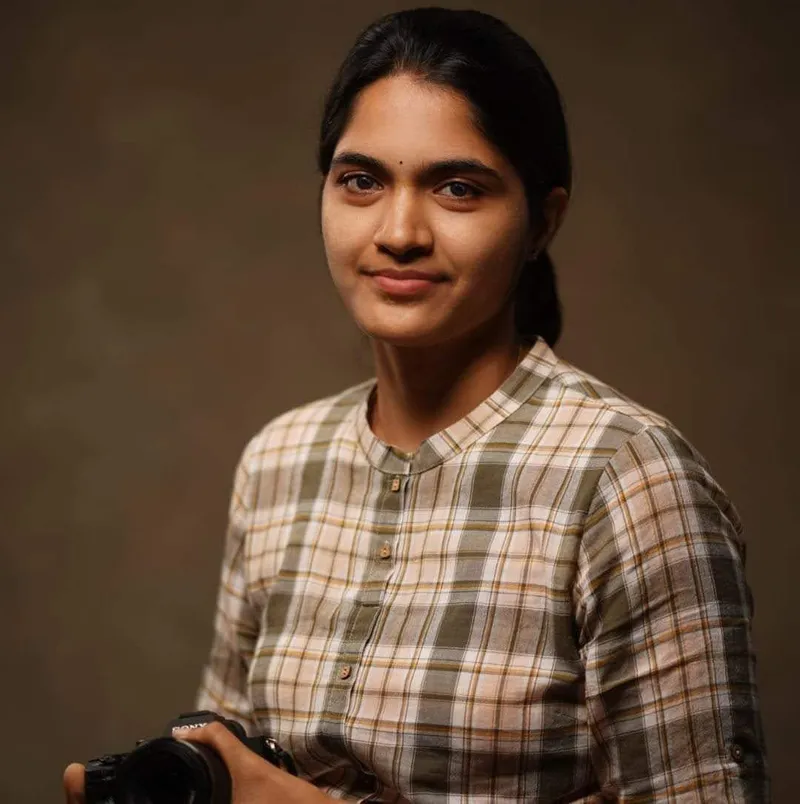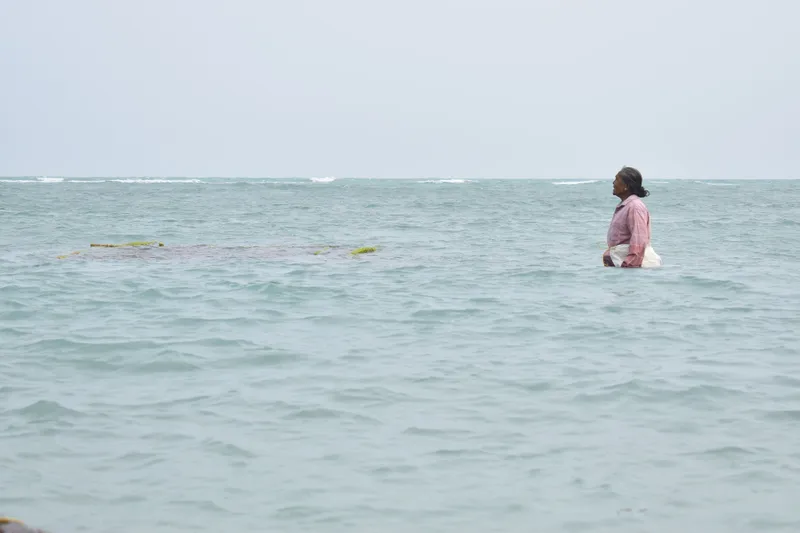Kanavu: Turning small-town women into professional photographers
Studio A and CPB Foundation’s Kanavu Fellowship has created wedding, documentary and newborn photographers out of homemakers, stay-at-home mums and fresh graduates from across Tamil Nadu.
Until a few years ago, Chennai photographer Amar Ramesh saw that at his talks and workshops across Tamil Nadu district, only two out of 300 people who turned up were women.
Three years ago, his Studio A along with Chennai Photo Biennale (CPB) Foundation, decided that in order to bridge the gender gap, they had to start with areas where participation of women and those identifying as women were sparse: low and lower-middle class homes in Tamil Nadu's smaller towns.
The Kanavu (translating to ‘dream’ in Tamil) Fellowship, which they launched in 2021, has taken a diverse background of women — homemakers, fresh graduates and stay-at-home mums from marginalised backgrounds — and put them behind the camera to tell the stories they want.
Some of these participants have emerged the first-of-their-kind female photographers in their towns specialising in niche genres like documentary, wedding and new-born photography.

Photographer Chandini Ramesh of Theni district
Among Team Kanavu’s pride is Chandini Ramesh, 33, mother of a five-year-old from Lakshmipuram in Theni district, and the best-known newborn photographer in town.
Soon after marriage, Chandini had quit work to run the house. "After my daughter was born, I was always clicking photos of her using a basic digital camera I had back then. I was also looking up YouTube videos to learn how to get better shots,” said Chandini. “Eventually, my friends who saw my work found some aesthetic to my framing and composition, and started getting their babies photographed by me.”
When Chandini came across the Kanavu fellowship online, she saw it as the breakthrough she needed to becoming a professional.
"I had an almost non-existent presence on social media, but today, most of my work comes from what and how I post online. I also use what I earn through my projects to buy lights and equipment," Chandini says.
Every year since 2021, close to 50 women respond to an open call for the fellowship, of which, five of the most marginalised - in terms of caste, gender identity and socio-economic background - are selected.
In India, commercial photography and cinema have for years remained fields dominated by men - in the narratives that find a place in these arts, as well as the artists behind the lens who create them.
"Chennai, for instance, has many avenues for commercial film and photography, but women entering the field face barriers at every step," says Gayatri Nair of CPB Foundation, who along with Ramesh is a mentor for the fellowship programme. "You can only imagine how inaccessible this space would be then, for women from smaller towns," she adds.
Incidentally, Gayatri also happens to be the first woman photographer Ramesh took in, in 2012.
Creating industry-ready lenswomen
Through the year-long programme, which is supported by RR Donnelley and Photo South Asia, fellows are given cameras and equipment, trained by working professionals and inducted into the photography community. After gaining the technical knowhow of photography and filmmaking, beginning with the fundamentals, they are armed with business and project management, and critical thinking and portfolio development skills. They are finally walked through the best ways to network within the arts and media fraternity.
“A part of the curriculum is to expose them to different emerging genres, so that they have the autonomy and confidence to pick what they like; photojournalism, fashion, commercial or documentary. The network they build during the programme also helps many of them find work later,” says Nair.

A photograph taken by second year fellow, Sowndarya Mageshkumar
“We also found important voices lacking in local stories told by local women. And through this programme, we’ve seen fellows highlight the plight of their area’s fisherwomen or talk about tribal communities,” says Ramesh.
Kanavu is entering its third edition in June, but it continues to evolve. "The first year was just about photography and videography training. In the second year, we went outside the studio and collaborated with other women photographers to take classes. We also began focussing on communication skills and social media," says Ramesh.
In many cases after the end of the programme, CPB Foundation and Studio A have helped fellows find jobs and rented out equipment free of cost whenever needed. “One of our first batch students found a full-time job as a photographer at the Dakshina Chitra heritage museum in Chennai. We have found another student from the second year of our fellowship programme, a job as a photographer at a popular textile store in Chennai,” says Amar.
Second year fellow, Sowndarya Mageshkumar, 30, of Mandapam village in Ramanathapuram, has been touring the district, camera in hand, determined to tell stories of lesser known mangrove forests and local women shell craft makers.
“When we started, I felt that with photography as an art form that has become so widely democratised with smartphones, we needed to look beyond tailoring classes or teacher training as the only avenues for women to become financially independent, decision-making people,” says Ramesh.
The team is now looking at expanding the programme and making it comprehensive enough to create full-time professionals out of every woman they train, but funding has been a challenge after the pandemic. “In the coming years, we aspire to train our fellows in a way that they can do anything readily; from getting a studio job to shooting a full-fledged film with confidence.”
Edited by Akanksha Sarma







